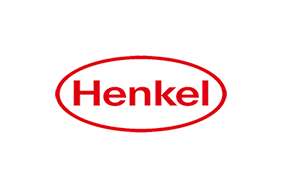3 Trends Driving Digital Learning
New learning culture in companies
Published 08-18-23
Submitted by Henkel

In this story, you will learn:
- Why learning videos are in high demand
- How employees use the Henkel Learning Hub
- How employees learn digitally in groups
Digitalization is moving forward at a rapid pace, in our private lives as well as at work. Whether in administration, manufacturing, purchasing or sales, familiar processes and job profiles are changing everywhere, and new fields of activity are emerging that require different skills. This makes it even more important to train employees quickly and efficiently – and to do so continuously throughout their entire working lives, in other words: lifelong learning. That's why more and more companies are turning to digital learning on PCs or tablets, on online platforms or in virtual classrooms.
Digital learning also plays a central role at Henkel. The goal is to make employees fit for the challenges of the future. In the process, employees are learning in an increasingly self-determined manner, often independent of time and place. Here you can read about the trends driving digital learning and the opportunities offered by this form of training and development.
1. Microlearning or learning in bite-sized chunks of information
The name says it all: microlearning stands for learning in small units. Mostly in the form of short videos, infographics, or a quiz. Between three and 15 minutes long, tailored to the individual needs of the employees. A form of training and development that is becoming increasingly popular. And for good reason. Microlearning saves time and money. It is not always necessary to fully understand a topic. Sometimes it is enough to pick out individual aspects. In addition, learners can decide for themselves when and where they watch a video, for example. Microlearning is therefore very flexible. And it offers a wide range of different content – from job-related topics to language courses to health issues and much more.
Henkel also relies on this form of knowledge transfer. In the “In a nutshell” video series, experts from a wide range of areas discuss topics related to everyday working life. The topic of "e-charging stations at the site" is addressed, as are interesting facts about "idea management" and "Girls' Day". In total, more than 35 of these one-and-a-half-minute videos are already online. Henkel is thus in line with the trend. According to a Cisco study, 82 percent of all online content was already in video format by the end of 2022. They are in such demand because people react particularly strongly to audiovisual stimuli. They attract more attention, the content is retained longer, and they are easier to consume.

2. Individual learning journeys on digital platforms
The direction has long been set: Employees are learning more and more independently and self-determined. This applies not only to the content, but also to the formats, the goals, and whether they learn alone or in groups. Digital learning platforms form the basis for this. Like the Henkel Learning Hub, which the company introduced in 2019. This platform offers employees worldwide access to more than 4,000 learning modules. Modules that focus on promoting digital skills, digital transformation, agile working and simplifying work processes are particularly popular. In terms of training, the topics are digital marketing, feedback culture, remote leadership, and remote sales.
Employees decide where and when they want to learn. In addition to e-learnings, podcasts and videos, the Henkel Learning Hub also includes learning formats in which groups come together virtually, exchange ideas and work together on topics. The new learning is characterized by the fact that the selection and combination of learning formats is personality-oriented and situationally adapted to the requirements of the learners. The goal is to establish learning as an important part of the daily work culture. After all, independent employees who critically question knowledge and make it individually useful for themselves will not only write personal success stories but will also have a significant impact on the success of the company.

3. Learning together with the help of social collaboration tools
Global competition is getting tougher and tougher, and the pace of technological change is accelerating. Companies must adapt to this and simplify their processes. The goal: to become faster and more agile. One requirement for this is to break down the boundaries between individual business units and functions and do away with thinking in silos. Social learning can make an important contribution to this. This means nothing other than bringing people together to learn and create ideas in groups. Employees use social collaboration tools such as social media networks, but also wikis, apps, blogs and video platforms. These tools support exchange and collaboration and promote the learning process. Often in cross-location and cross-country teams that may not even live in the same time zone.
But it's not just learners who are in a new, more self-determined role. This also applies to the experts in Human Resources, especially in Global Learning & Development. In the future, they will take on a more supportive role: as learning process facilitators, learning community managers or learning coaches. They will also create learning spaces for co-creation, i.e., for interdisciplinary collaboration within the company, and for self-reflection.

Henkel
Henkel
About Henkel in North America
Henkel’s portfolio of well-known brands in North America includes Dial® soaps, Persil® and all® laundry detergents, Snuggle® fabric softeners, Schwarzkopf® hair care, as well as Loctite®, OSI®, Technomelt® and Bonderite® adhesives. With sales close to 6.6 billion US dollars (6 billion euros) in 2023, North America accounts for 28 percent of the company’s global sales. Henkel employs around 8,000 people across the U.S., Canada and Puerto Rico. For more information, please visit http://www.henkel-northamerica.com and on X (Twitter) @Henkel_NA.
About Henkel
With its brands, innovations and technologies, Henkel holds leading market positions worldwide in the industrial and consumer businesses. The business unit Adhesive Technologies is the global leader in the market for adhesives, sealants and functional coatings. With Consumer Brands, the company holds leading positions especially in laundry & home care and hair in many markets and categories around the world. The company's three strongest brands are Loctite, Persil and Schwarzkopf. In fiscal 2023, Henkel reported sales of more than 21.5 billion euros and adjusted operating profit of around 2.6 billion euros. Henkel’s preferred shares are listed in the German stock index DAX. Sustainability has a long tradition at Henkel, and the company has a clear sustainability strategy with specific targets. Henkel was founded in 1876 and today employs a diverse team of about 48,000 people worldwide – united by a strong corporate culture, shared values and a common purpose: "Pioneers at heart for the good of generations.” More information at www.henkel.com.
More from Henkel

